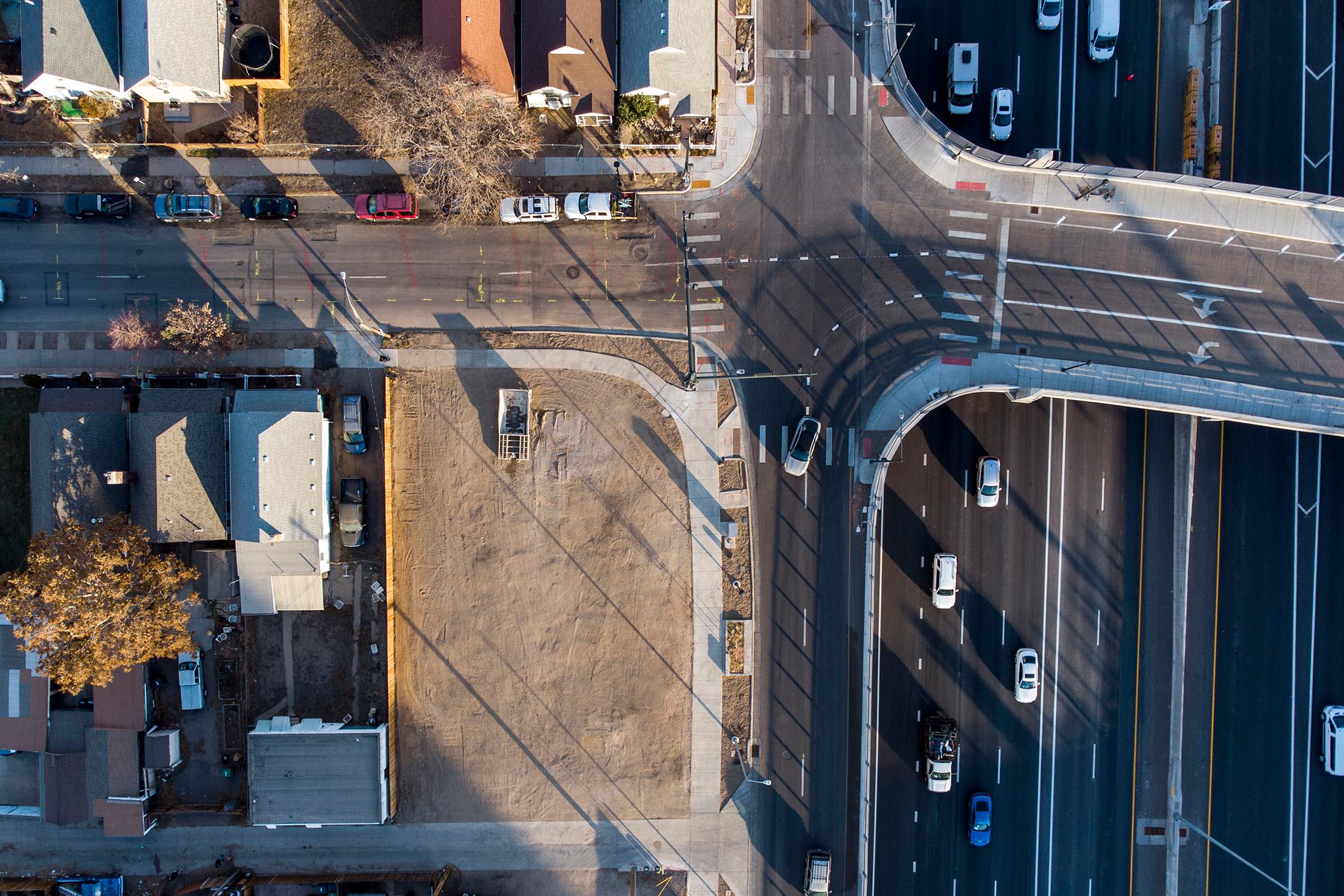In 2016, as Colorado began work on a contentious plan to widen I-70, the state relocated Elyria-Swansea residents whose homes and businesses stood in the way.
Colorado Department of Transportation (CDOT) acquired 74 properties through eminent domain as part of the controversial $1.2 billion project that lowered the highway, demolished the viaduct dividing the neighborhood and built a park in its place.
CDOT paid for owners and renters to move into new housing, and for some renters to become owners through relocation assistance. But some residents affected at the time struggled to find housing that matched their needs and met federal requirements in a competitive market. Others had to leave the neighborhood they had called home for years.
Now, a few of those properties taken from residents and business owners sit empty as dirt lots, ultimately not part of the permanent project. With construction having wrapped in November, the community wants the plots back to build housing on them.
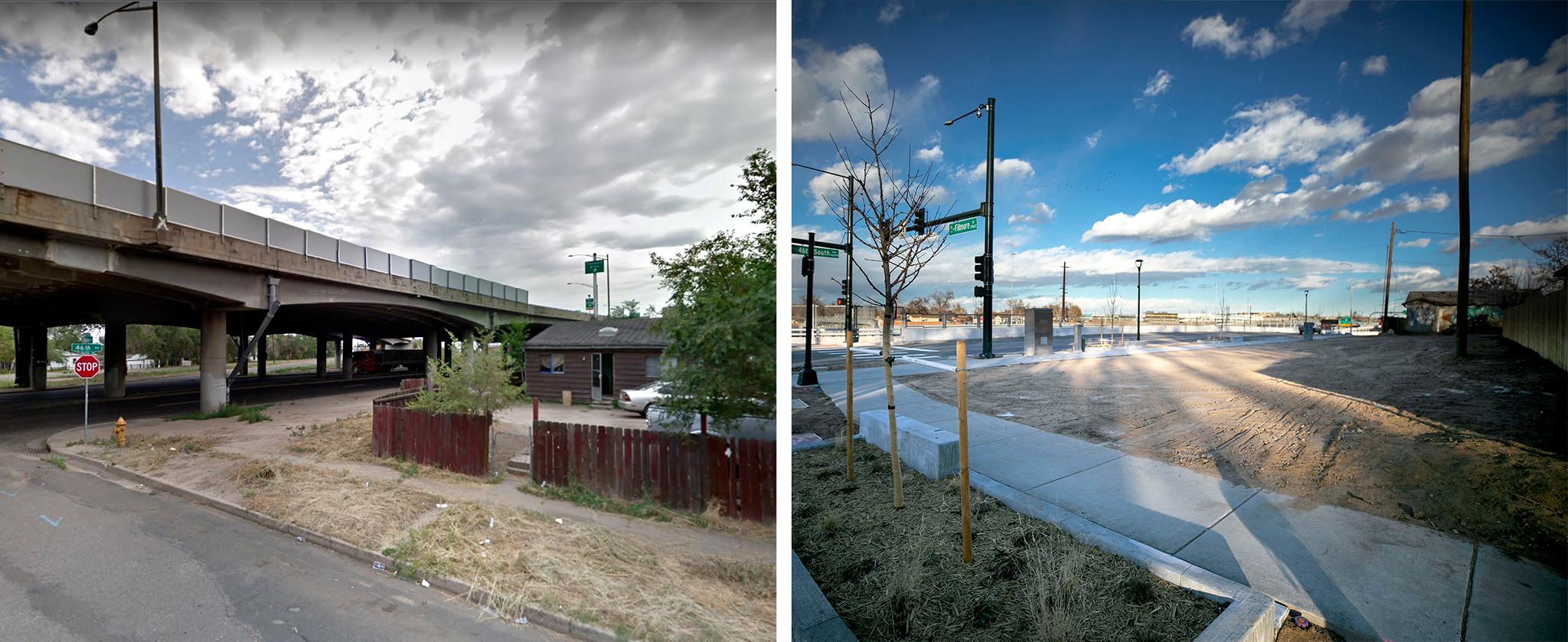
It's unclear why the state took property from residents that would ultimately sit empty.
"The project did not unnecessarily purchase homes or businesses," said CDOT spokesperson Stacia Sellers. "If it was determined that additional property was needed, we would evaluate how much of the property was going to be impacted. If the impacts to the property were significant and altered the property's functionality, we would purchase the entire property. The remnant parcels are primarily very small slivers of land."
CDOT did not provide answers about the use of specific parcels during the project, and the construction company, Kiewit, did not respond to requests for comment.
CDOT Executive Director Shoshana Lew said that having leftover property is normal for a construction project of this size as some land can be temporarily used for things like office space that is removed upon completion of a project.
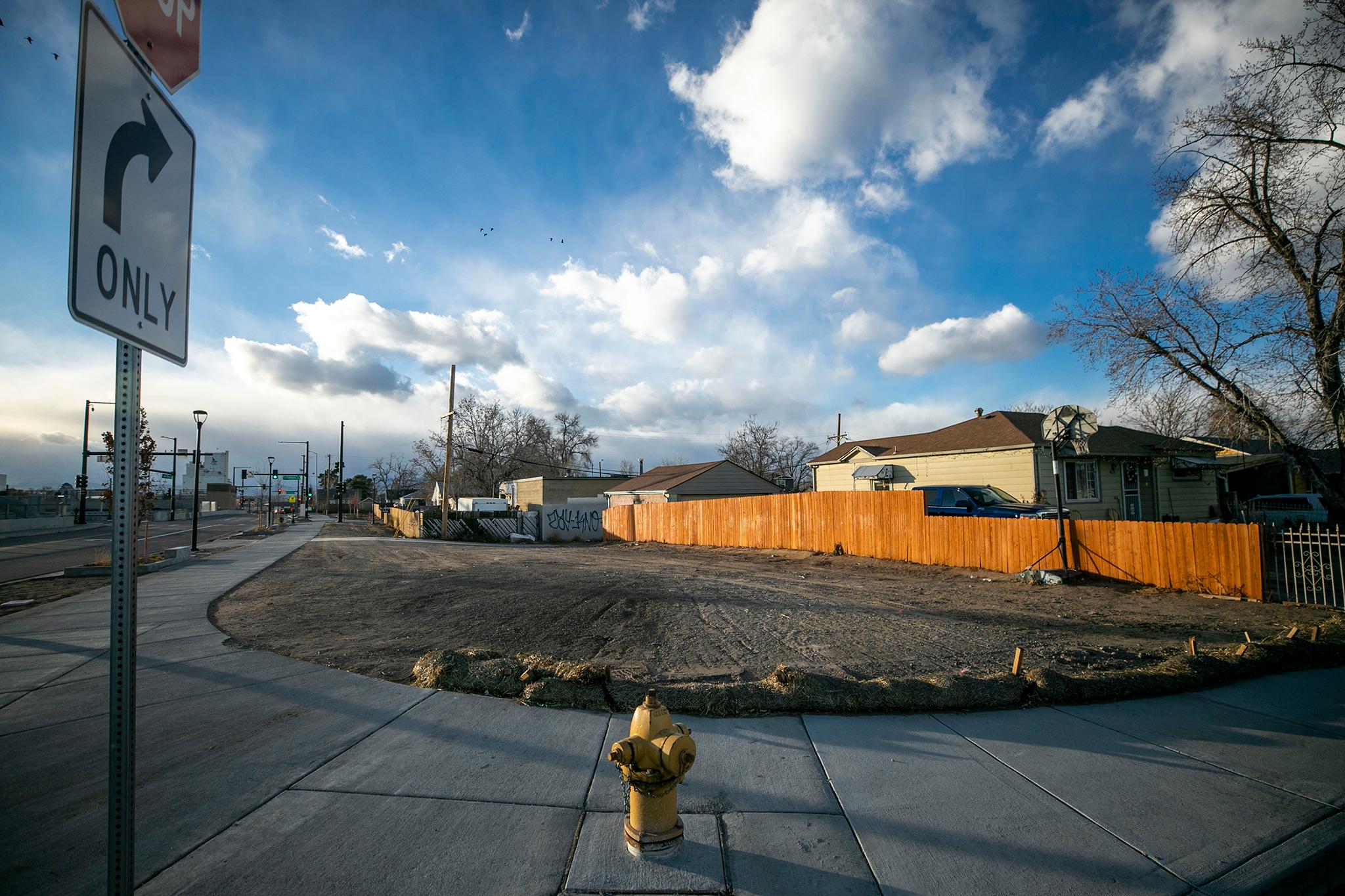
But the empty plots aren't all tiny slivers of land. And with the project finished, community members want what was there before: housing.
Long time residents in Elyria-Swansea have seen rising property values over the years and worry about ongoing gentrification, especially now that a large community park sits where a crumbling viaduct used to be. Looking at the empty lots, community advocates see an opportunity to build housing.
Some of the parcels sit in more industrial areas ill suited for community development. But a few lie at the end of residential blocks lined with single-family homes, and are big enough for new buildings. Before the construction, the properties at the end of the block facing I-70 were adjacent to the towering viaduct, with the highway rumbling overhead. Today, the empty lots are still next to I-70, but it's a lot quieter with the highway lowered.
State regulations require CDOT to get the property appraised and sell it at market value. The prices of leftover lots will almost certainly be higher than what the state originally paid residents, as property values have risen and the I-70 project itself decreased the prominence of the highway and brought a new park.
"It's kind of ironic that the project itself has actually raised the value," said Nola Miguel, co-director of the community group GES Coalition. With GES Coalition, Miguel has been applying for state and federal funds to purchase plots for a land trust for the community.
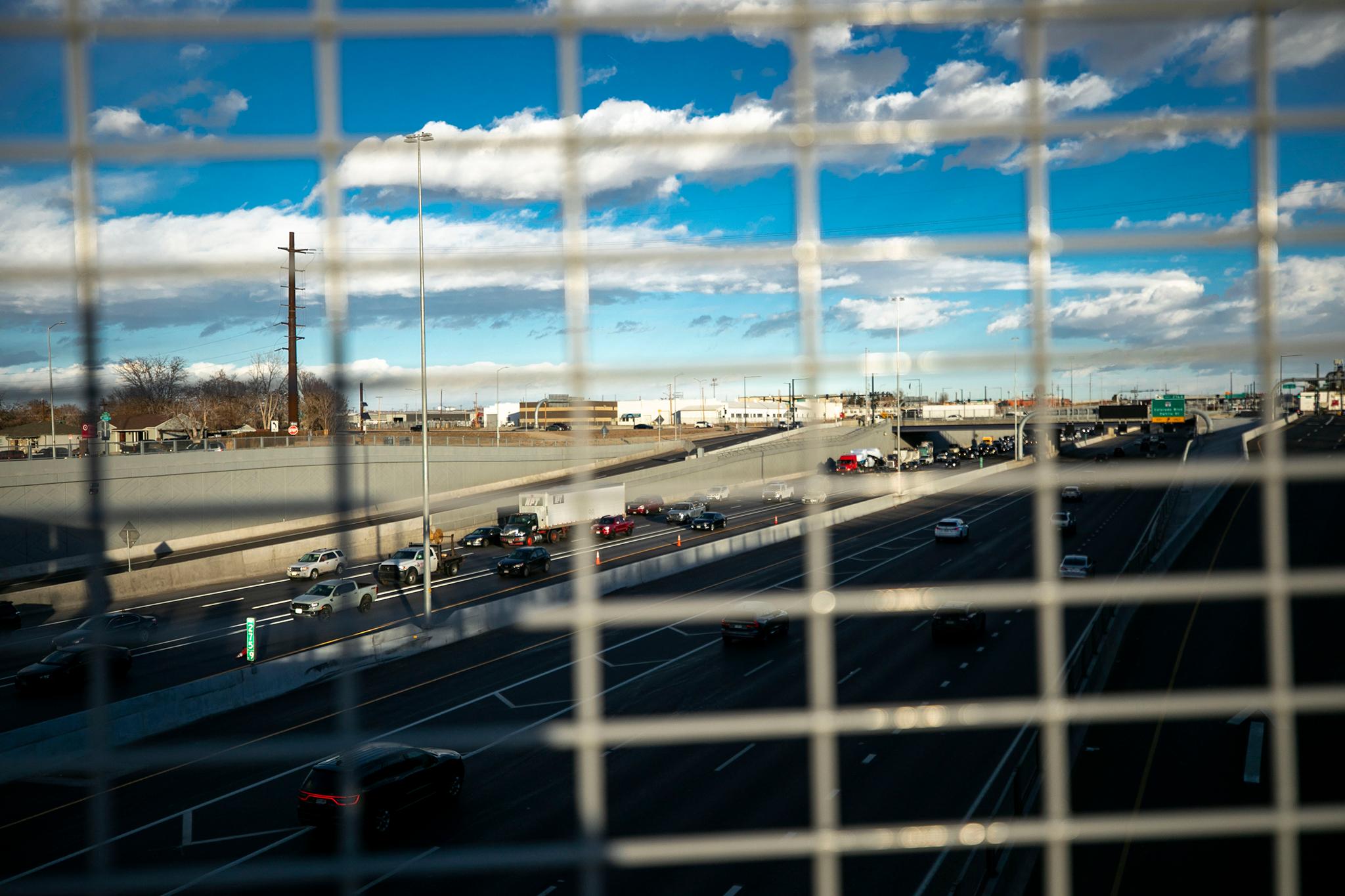
Councilwoman Candi CdeBaca represents Elyria-Swansea, and organized against the project as an activist before her election to Council. She sees the effort to regain the land as connected to Indigenous Land Back movements, as well as efforts across the country to repair harm caused by highway development that separated low-income, non-white neighborhoods like hers in the 1960s.
"It's infuriating to walk through my community and see that there are remnant parcels that were once neighbors," she said. "But I do think that the best solution is just to return the land to community."
CDOT says they expect to have appraisals sometime in 2023.
In the meantime, Miguel is applying for $2 million for three properties: 4631 Josephine St., 4542 Fillmore St. and 4625 Milwaukee St. Miguel said her figure might be high, but that she'd rather overestimate than come up short.
Property records show that CDOT paid $285,000 for 4625 Milwaukee St. in 2018, but it's unclear how much the state paid for the other two properties.
Miguel said she can't help but wish that any potential leftover land was included in negotiations about the project to begin with. When CDOT was first developing the project, activists pushed back about air quality and noise concerns and ended up winning a $500,000 settlement, with additional promises for health studies and the park.
"I think there's definitely that feeling of, these are the community's parcels, there shouldn't be this question of how we pay for them."
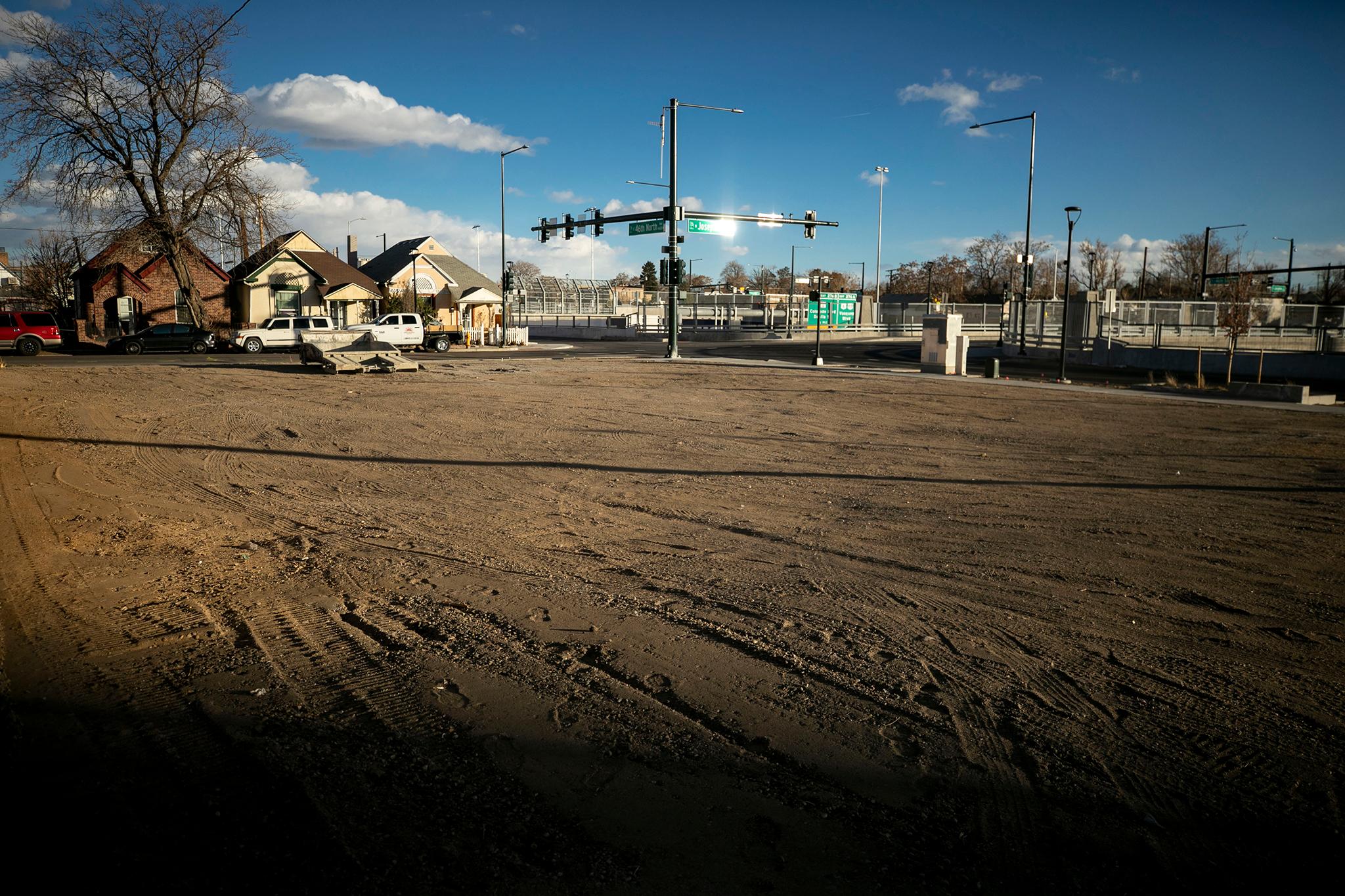
State regulations say that local municipalities are given the first opportunity to purchase leftover land. But Miguel said CDOT has expressed a willingness to work with the community.
"They [CDOT] have been openly showing us what the parcels are and trying to figure out how we could get them into the land trust," she said. "I think there's an agreed upon desire to do so.'"
CdeBaca said the city, which has the chance to purchase land first, also wants to work with GES Coalition. "The city is well aware of the community's expectation of CDOT, and I believe they're going to honor that commitment," CdeBaca said.
Now, the question remains how to pay for it. GES Coalition made it to the final round for a federal funding program but ultimately did not get the money. Miguel is worried, but appraisals won't happen until sometime in 2023. In the meantime, she's applying for state funding, with the hope that something will come through.

